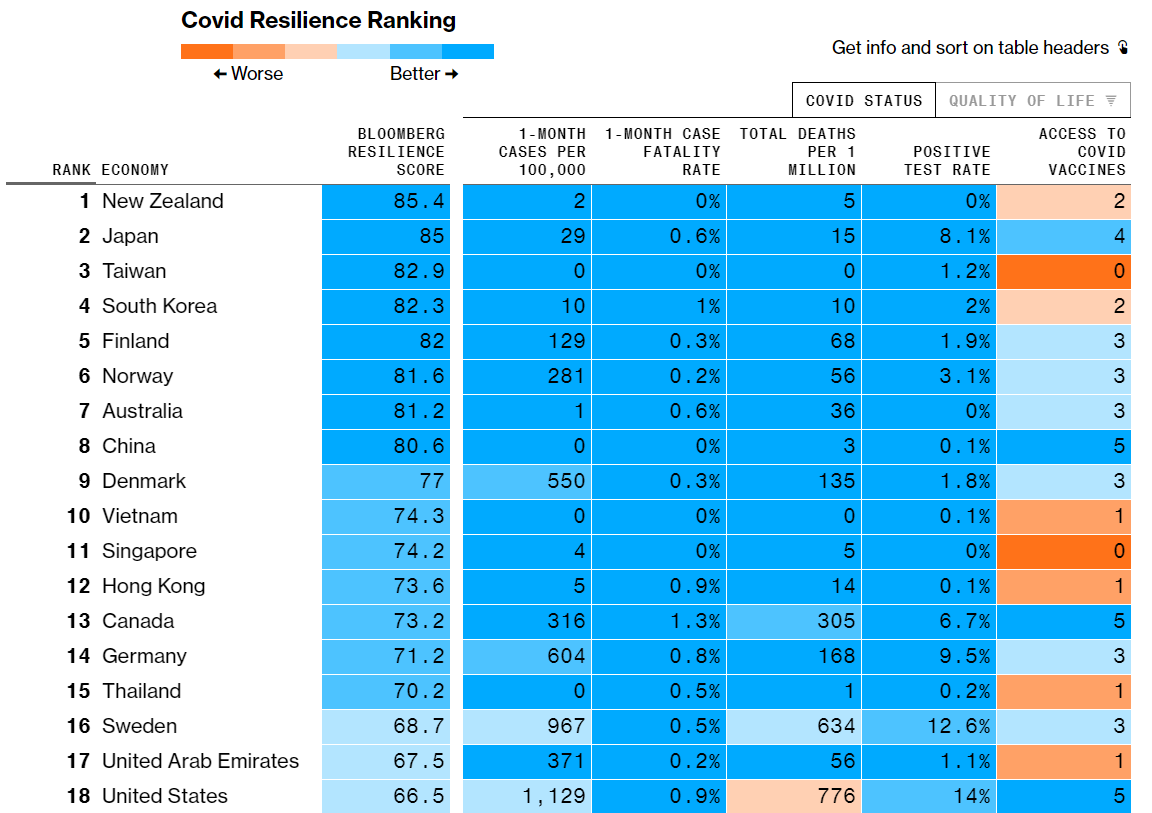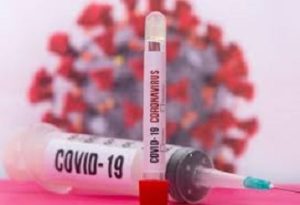| Every month, Bloomberg crunches the numbers for a snapshot of the best and worst places to be in the Covid-19 era.
The Covid Resilience Ranking—now expanded to 11 moving indicators including cases, fatalities, vaccine distribution and people’s freedom of movement—shows where the virus has been handled the most effectively, with the least amount of social and economic disruption. People are finally getting shots: more than 30 places among the 53 major economies ranked have started their inoculation campaigns, led by Israel and the United Arab Emirates, where as many as 40 doses per 100 people have been given out. Still, the biggest global vaccination campaign in living memory has yet to reach a point where it’s causing meaningful shifts in the ranking. Top performers like New Zealand, Taiwan and Australia, with almost no local transmission and balmy weather, have not been hurt by the fact that they are among the minority of places where vaccines are still unavailable.
Mexico, where President Andres Manuel Lopez Obrador recently became infected with Covid-19, remains last-placed as fatalities reach a record high. The world’s focus is now on how quickly vaccinations can change the picture. In Israel and the UAE, infections and deaths are still surging. There’s much that’s still unknown about how inoculations will play out in the real world. We know that vaccines at some point should cause hospitalizations and deaths to drop, but we don’t know if they stop people from spreading the virus nor if the infection curve will flatten. An inflated sense of security from being vaccinated could cause people to take risks and gather in crowded indoor places, potentially blunting the shots’ impact. Still, hopes are high that the vaccine rollout will herald a return to normal: the UAE is determined to host the Expo 2020 in October while Israel is already introducing immunity passports. February’s Covid Resilience Ranking will show if—and by how much—those hopes can be realized. Stay tuned. |

The Covid Resilience Ranking
0



